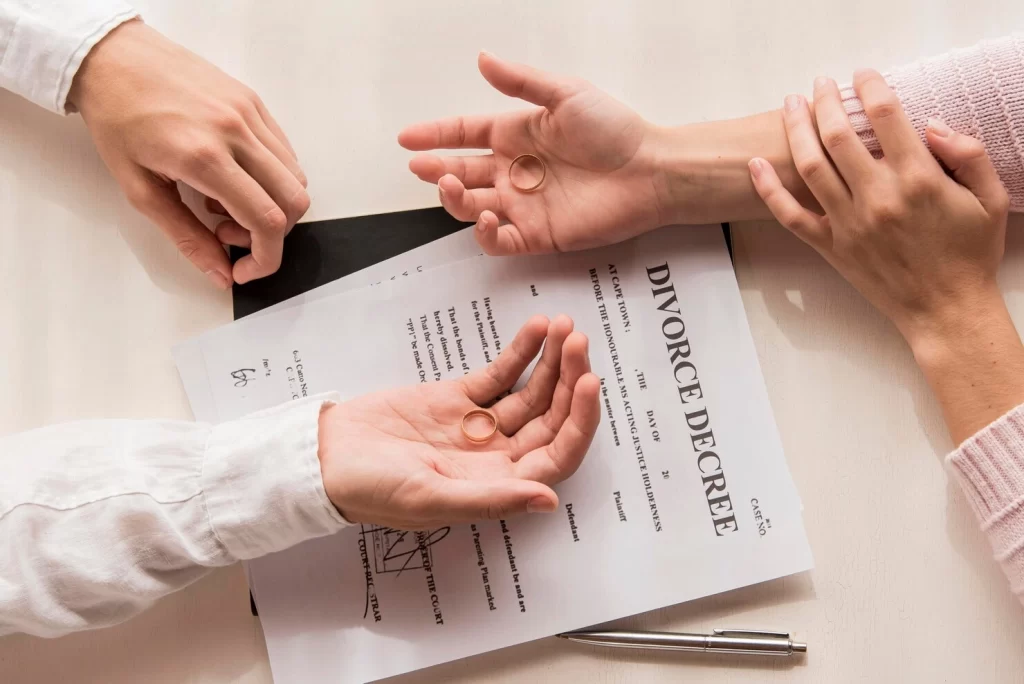Marriage is often viewed as a lifelong commitment built on love, trust, and mutual respect. However, life can be unpredictable, and circumstances can change. This is where a postnuptial agreement (postnup) can play a crucial role in safeguarding your future. In Houston, as in many other places, postnups are becoming increasingly popular as couples seek to protect their assets and define their financial responsibilities.
This blog discusses the benefits of postnuptial agreements, situations where they might be crucial, how they differ from prenuptial agreements, and the legal steps involved in creating a legally sound and enforceable postnup.
Understanding Postnuptial Agreements
A postnuptial agreement is a legal contract entered into by spouses after they are married. It outlines the division of assets, financial responsibilities, and other pertinent matters in the event of a divorce or separation. Unlike prenuptial agreements, which are made before marriage, postnuptial agreements are formulated after the marital vows have been exchanged.
Benefits of Postnuptial Agreements
Asset Protection
One of the primary reasons couples opt for a postnuptial agreement is to protect their assets. This is particularly important for those who enter marriage with significant personal wealth or those who acquire substantial assets during the marriage. A postnup can clearly define which assets remain separate property and which are considered marital property.
Debt Management
Postnuptial agreements can also address debt responsibilities. If one spouse incurs significant debt, a postnup can protect the other spouse from being held responsible for repayment. This is especially relevant in community property states like Texas, where debts incurred during the marriage are typically considered joint liabilities.
Clarity and Communication
Creating a postnuptial agreement requires open and honest communication about finances, which can lead to a clearer understanding of each partner’s financial expectations and responsibilities. This transparency can strengthen the marriage by fostering trust and reducing financial conflicts.
Support Provisions
Postnuptial agreements can outline spousal support arrangements, providing security for both parties. This can be particularly beneficial if one spouse sacrifices their career to support the family, ensuring they receive fair compensation if the marriage ends.
Business Protection
For couples involved in business ventures, a postnup can protect the business interests of one or both spouses. This can prevent the disruption of business operations and ensure the business remains intact in the event of a divorce.
Situations Where a Postnup Might Be Crucial
Change in Financial Circumstances
Significant changes in financial circumstancescan prompt the need for a postnuptial agreement to protect these new assets.These can include receiving a large inheritance, starting a successful business, or experiencing a substantial increase in income,
Marital Issues
Couples experiencing marital issues may use a postnup to address concerns and establish terms that could prevent future disputes. This can serve as a tool to rebuild trust and stabilize the marriage.
Second Marriages
In second marriages, especially where there are children from previous relationships, a postnuptial agreement can ensure that the interests of all parties, including children, are protected.
Health Concerns
If one spouse experiences health issues, a postnuptial agreement can address financial responsibilities related to medical expenses and care, ensuring both parties are protected.
Differences Between Prenups and Postnups
While both prenuptial and postnuptial agreements serve to protect individual interests and outline financial responsibilities, there are key differences between the two.
- Timing: Prenuptial agreements are made before marriage, while postnuptial agreements are made after the couple is already married.
- Emotional Context: Negotiating a prenuptial agreement typically occurs when the relationship is new and exciting, whereas postnuptial agreements might be negotiated during times of marital strain or significant life changes.
- Legal Scrutiny:Courts may scrutinize postnuptial agreements more closely than prenuptial agreements due to the potential for coercion or unfair advantage. Therefore, ensuring the fairness and voluntary nature of a postnup is crucial.
Legal Steps to Create a Postnuptial Agreement in Houston
- Full Disclosure: Both parties must fully disclose their assets, liabilities, income, and financial expectations. Full transparency is essential for the agreement to be considered valid.
- Independent Legal Advice:Each spouse should seek independent legal counselto ensure their interests are adequately represented and that they fully understand the terms of the agreement.
- Fair and Equitable Terms:The terms of the postnuptial agreement must be fair and reasonable. Courts may refuse to enforce an agreement that appears to be one-sided or unconscionable.
- Written Agreement: The postnuptial agreement must be in writing and signed by both parties. Verbal agreements are not enforceable in court.
- Notarization: Although not always required, notarizing the agreement can provide an additional layer of validation and ensure there is a clear record of both parties’ consent.
- Review and Update: Periodically reviewing and updating the postnuptial agreement can ensure it remains relevant and reflective of the couple’s current circumstances.
At Daniel Ogbeide Law, we understand that life can bring unexpected changes, and we are here to help you protect your future with a well-crafted postnuptial agreement in Houston. Our experienced family law and litigation attorneys in Houston are dedicated to providing comprehensive legal guidance tailored to your unique circumstances. Whether you’re looking to safeguard your assets or ensure financial clarity, our team is committed to creating fair and enforceable postnuptial agreements.
Contact us today to protect your future with confidence.




















